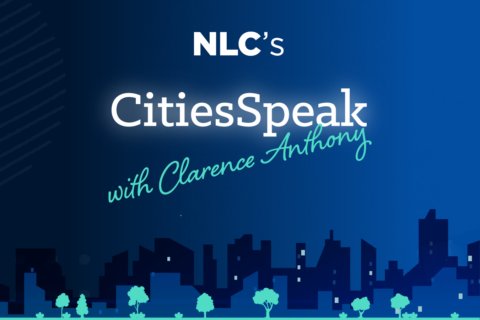Authored by Adam Layne, Treasurer, City of St. Louis, MO
I once heard someone say, “You measure what you care about.” That idea has shaped my approach to data and guided my work in St. Louis. It also led to the creation of the Banking for Economic Equity (BEE) Scorecard — a comprehensive tool we use to assess the equity impact of our city’s banking institutions, both quantitatively and qualitatively.

Far too often, municipalities state their bold economic equity goals then urge partner institutions to walk in alignment without actually defining the measures of successful alignment and partnership. This lack of tangible metrics puts institutions in a place of guessing — hoping their internal strategies align with public priorities. So, I began developing a tool that would measure what we care about; a tool that accounts for the business of a banking institution, accounts for its role in economic development and produces an equity impact score in alignment with the economic justice priorities of the City of St. Louis. The goal was simple: take the guesswork out of measuring equitable economic impact for any city.
Four years later, this BEE Scorecard is doing just that, giving us insight in ways we couldn’t have even imagined when we first launched it.
Five Categories
The scorecard has five categories: Leadership Diversity, Client-Facing Diversity, Equitable Lending, Customized Products & Programs and Community-Focused Empowerment.
Leadership and Client-Facing Diversity
Measuring diversity and diversity initiatives at the leadership level shows the variety of thought and responsiveness to make decisions that have real economic implications for individuals and communities.
Equitable Lending
The Equitable Lending category uses a formula that considers lending volume and approval rates to calculate the bank’s effective ability to generate value-added mortgage volume in historically underserved census tracts.
Customized Products & Programs
The Customized Products & Programs category is an opportunity for banks to brag about the offerings they’ve created to specifically welcome people into the banking world, with targeted programs to make banking and economic growth accessible to individuals and businesses. Individuals and businesses that have historically been denied access to quality banking products.
Community-Focused Empowerment
Lastly, Community-Focused Empowerment measures the direct philanthropic efforts of banking institutions through donations to sustainable community partnerships, ensuring the longevity of local nonprofits and service organizations.
The development of the scorecard was a significant undertaking, but well worth it. We simply started by looking at the data we collected from our banks and comparing it to our city’s economic justice priorities. Then we asked ourselves a few questions: What was missing? What aren’t we collecting? What data do we want to see? From there, we categorized the items we wanted to assess into five categories, and I began building a comprehensive rubric that outlined and quantified what it meant to excel in a category and what it meant to struggle. Then, we built a community survey to incorporate community lived experience with our partners into the scoring, and developed the scoring systems and scoring formulas.
Partner Response
The response from our 16 different banking institution partners has been overwhelmingly positive. Our partners have expressed appreciation for the clarity and transparency the scorecard brings. They feel that they know exactly what the city’s expectations are as well as their role in the overall vision our city has for economic development. By publishing the scorecards, we create a culture of shared learning. Banks can see how others are innovating, and we can build a stronger, more collaborative banking ecosystem for St. Louis.
Through the gathering of the data and the production of the analysis of this information in the scorecard format, we’ve been able to gain valuable insights. We’ve been able to deepen our understanding of where our banks are strongest, which creates more efficient pathways to success for individuals. For example, the data synthesized in the equitable lending category pleasantly surprised us. The data showed that even in tougher economic years, several banks recorded approval rates for low and moderate income (LMI) mortgage originations above 90%. We also learned the breadth and success of programs that were designed specifically to provide more entrepreneurs of color with capital provisions to help them persist.
As our Office of Financial Empowerment (OFE) works with individuals looking to build credit, entrepreneurs looking to start a business or budding homeowners, knowing that we have banking partners that excel at credit-building loans helps us specify the path. Knowing that an institution has funds specifically set aside for Black and Latino business accelerators helps us support those who come to our office holistically. Knowing and compiling this information helps St. Louisans know that there are supports and resources on the road to economic prosperity. Our banking partners are driven toward increasing their scorecard rating, not because it benefits them as a city depository, but because they understand that an increase in their score means an increase in the economic opportunities for individuals, families, businesses, and communities in St. Louis.
As we work toward a more inclusive economy, this type of transparency, partnership and alignment builds trust and drives investment where it’s needed most. If we want to change the trajectory of economic mobility in our country, we must do more than talk about values — we must measure them. In St. Louis, we’re doing just that. Our banking partners know what we care about because we measure it.
Join NLC’s EMPN Network
NLC’s Economic Mobility Peer Network is the premier way to connect with other municipalities, learn from experts and share promising practices in the economic mobility field. In addition, EMPN members are eligible for unique grant opportunities and there’s no cost to join.









